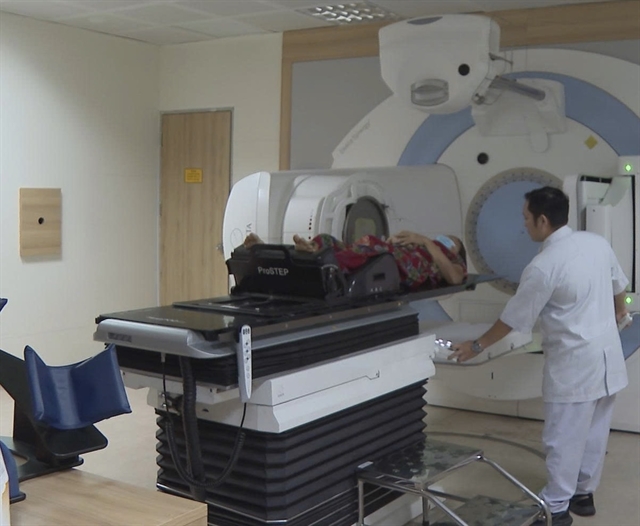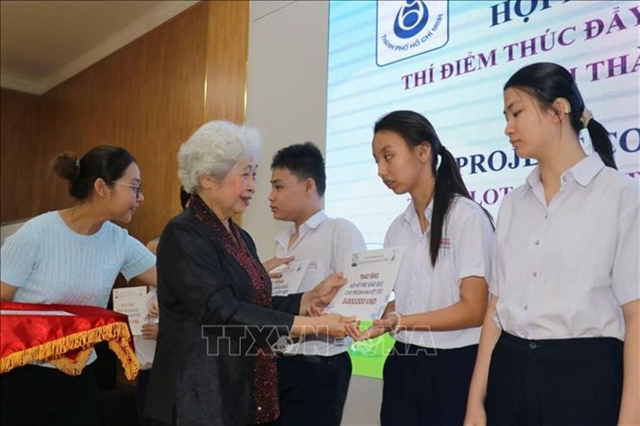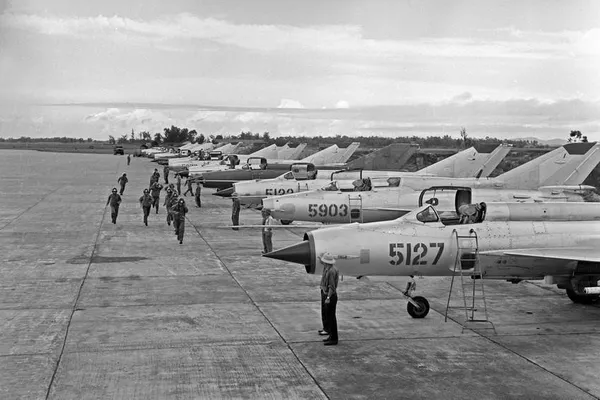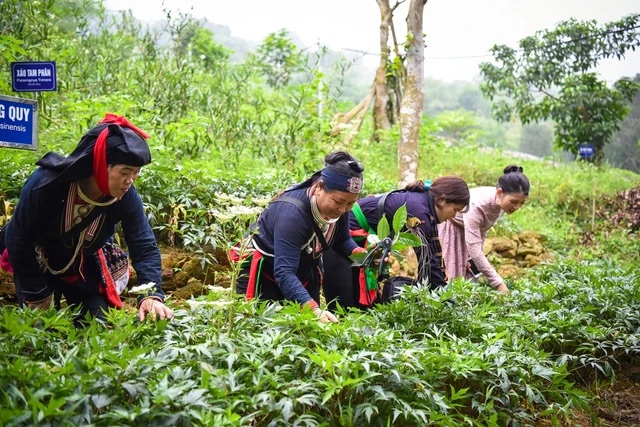 Environment
Environment
.JPG)
Seven baby Indochinese tigers, who were rescued from wildlife traffickers in the central province of Nghệ An in August 2021, are growing stronger every day thanks to the special care of the staff at the Wildlife Centre of Pù Mát National Park over the last eight months.
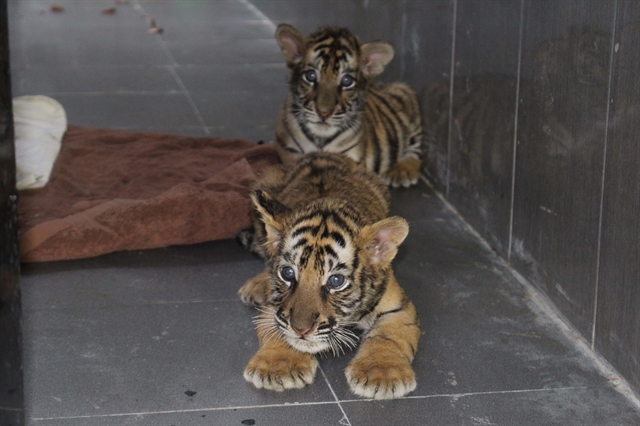
|
| A staff member feeding a baby tiger at the Wildlife Centre of Pù Mát National Park in the central province of Nghệ An.— Photo baophapluat.vn |
NGHỆ AN — Seven baby Indochinese tigers, who were rescued from wildlife traffickers in the central province of Nghệ An in August 2021, are growing stronger every day thanks to the special care of the staff at the Wildlife Centre of Pù Mát National Park over the last eight months.
Trần Xuân Cường, director of the national park, said each cub now weighs about 25-30 kg, much more than when they arrived at the centre.
Cường said when the cubs came to the centre, they were thin and weak due to a lack of food. Some of them had diarrhoea.
Nguyễn Tuấn Dũng, a staff member at the centre, told Pháp luật Việt Nam (Vietnamese Law) online newspaper that taking care of wild animals requires strict procedures to avoid harming their health.
Dũng also said he and his colleagues at the centre always check the cubs' health very carefully every day.
“Any changeable movement of the cubs during the day is meticulously monitored and recorded,” he said.
If there is something unusual, he and his colleagues promptly report to the research team, he said.
When the cubs were not used to bottle-feeding, the staff had to caress them to help them eat well, he said.
When they eat well, the staff have to monitor other expressions, such as the colour of their faeces and the amount of food they receive each day, he said.
According to Dũng, because the tigers were taken away from their mother after birth, the staff have to ensure that the milk they feed the baby tigers is clean. Each cub has its own milk bottle to ensure hygiene.
The staff clean the teeth of each baby tiger after feeding them with milk. They also massage them to stimulate digestion after they eat, he said.
“Tigers are very sensitive, vulnerable and tough, so they must be given care as friends,” he said.
Taking care of tigers is not only feeding them and cleaning up the cages but also creating a friendly relationship with them, he said.
When the tigers were small, the staff had to take care of them very carefully and patiently. When they are bigger, the work is less strenuous, but it means that the employees here have to face dangers, he said.
The staff have to adhere to safety measures when they feed the tigers. They are only allowed to put the food through the gap in the door of the cage, he said.
The entire cost of giving care and raising the tigers is supported by the Centre for Wildlife Conservation in Việt Nam, under Save Vietnam's Wildlife.
The tiger's food is beef, pork and chicken, which must be fresh and clean, he said.
To meet that requirement, the national park’s wildlife centre must order the meat from the local people to feed the tigers daily, he said.
The menu for tigers is very detailed, rotated daily and guaranteed in quality and quantity, he added.
According to Dũng, it has yet to identify the genetic source of the tigers to be pure-bred or has been crossed, therefore, the tigers cannot be released back into the wild.
The staff of the centre designed exercises for the tigers by hanging food on tree branches or releasing small animals into the cage for the tigers to hunt. It aims to help the tigers to form their instincts early, he said.
In the captivity area, stairs were built to help the tigers move, increasing their leg muscles and forming the necessary instincts, he said.
Although they cannot match what their parents could have taught them, it is necessary to create the best conditions for tigers to form their instincts as soon as possible in captivity, he said.
When the tigers become bigger, they will be transferred to the Centre for Rescue, Conservation and Biological Development of Phong Nha-Kẻ Bàng National Park in the central province of Quảng Bình for nurturing and conservation because Pù Mát National Park is set up as an emergency animal rescue place and only designed to raise small tigers. — VNS
.JPG)
